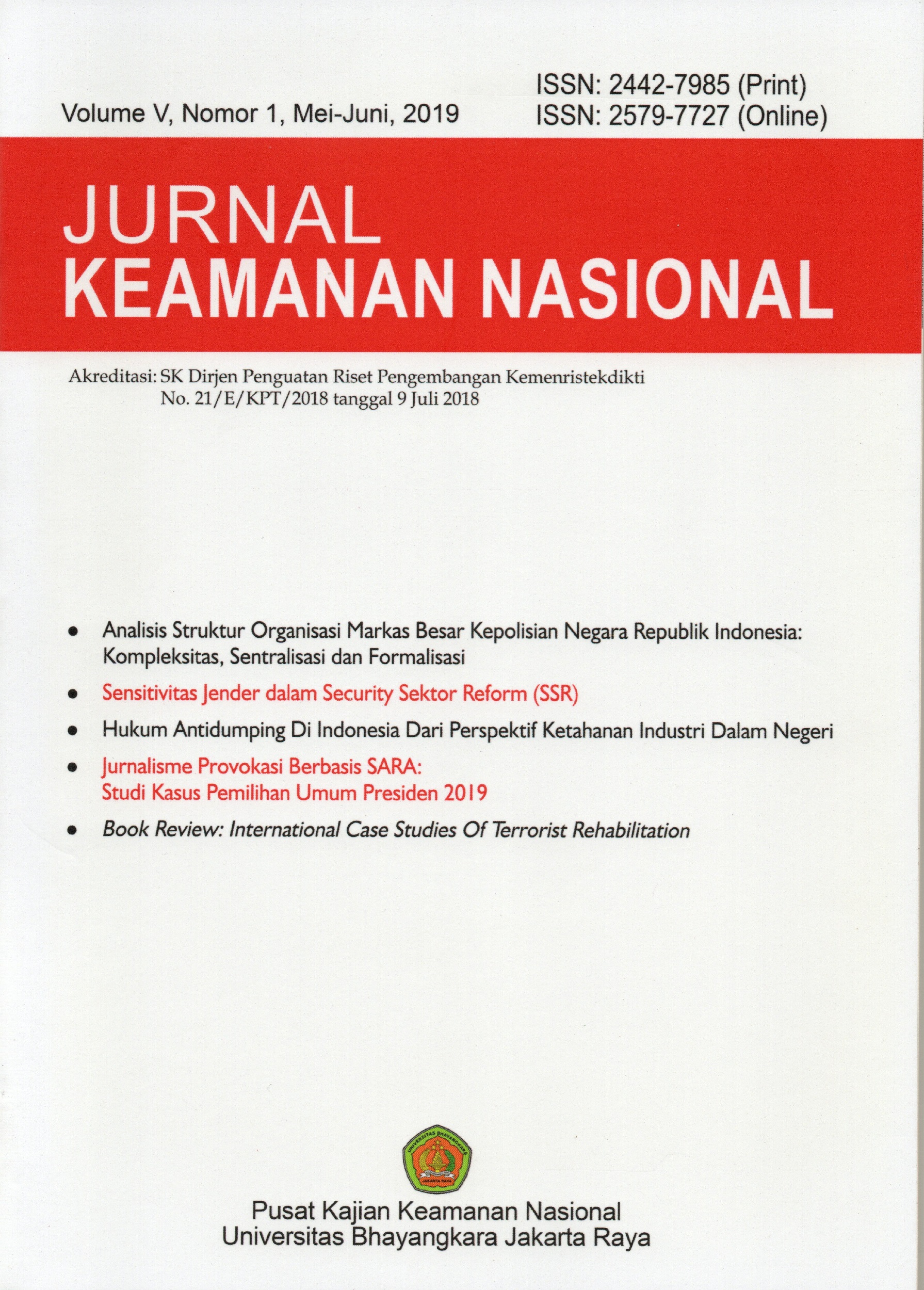Bood Review: International Case Studies of Terrorist Rehabilitation,
Writer: Rohan Gunaratna, Sabariah M. Hussin (Eds)
Keywords:
Rehabilitation, Terrorism and DeradicalizationAbstract
The post-9/11 rehabilitation programs have become attention in various countries. The projects for terrorism rehabilitation planning programs are systematically and structured carried out in several countries, such as Saudi Arabia, Singapore, Pakistan, Malaysia, Egypt, Iraq, and Uzbekistan. Whilst, this program is conducted through ad hoc institutions in some countries, such as in Nigeria, China, Indonesia, Bangladesh, Denmark, Germany, Britain, and Nepal. The terrorism rehabilitation program of the post-9/11 tragedy tended to be focused on terrorist groups that used Islamic symbols. This book consists of a series of case studies of different terrorist rehabilitation initiatives that have been attempted around the world. Rehabilitation programs in countries are critically analyzed to develop a good understanding of the significance of different approaches and strategies of terrorist rehabilitation in helping potential terrorists to integrate back into society. This book provides vital tools to address the challenges faced by practitioners of terrorist rehabilitation programs.
Downloads

Downloads
Published
Issue
Section
License
Please read and understand the copyright terms for submissions to this journal.
Copyright Notice
The Jurnal Keamanan Nasional is under the Creative Commons Attribution 4.0 International (CC-BY 4.0) License, according to which:
1) Authors retain copyright and grant the journal the right to first publication, with the work simultaneously licensed under the Creative Commons Attribution (CC-BY 4.0) that allows the sharing of articles published with the acknowledgement of authorship and the initial publication in this journal.
2) The authors are authorized to make additional contracts separately for distribution of the version of the work published in this journal (for example, publication in an institutional repository or as a chapter of the book), as long as there is recognition of authorship and initial publication in this journal.
3) Authors are authorized and encouraged to publish and distribute their work online (for example, in institutional repositories or on their personal pages) at any time before or during the editorial process, as it increases the impact and reference of the published work.












